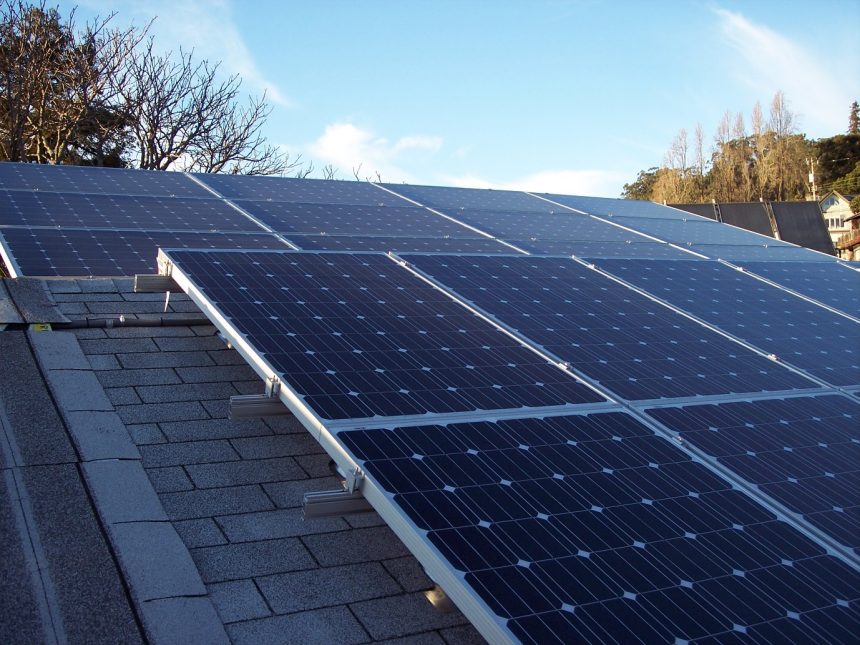Should you, or shouldn’t you? If there is one thing that polarises opinion, it’s how to buy into your own reliable source of alternative energy.

Many home and business owners are considering solar panels with reports of how much money you could save on your energy bills encouraging. A relatively simple system and easy to fix on your roof with high quality solar panel fixings, Balustrade Components takes a look at whether solar panels are the right choice for you.
Are solar panels cost-effective?
Detractors of this technology will take great delight in telling you that in February 2016, the UK Government cut the feed-in tariffs for solar panels. Hence, they say, you won’t get your money back as quickly… but you will still get a return on your investment.
Solar panels on a property don’t usually have an off button and this means that you can, in the summer months especially, generate more electricity than you can use. Thus, seamlessly and without any effort on your part, this excess electricity is ‘fed-in’ to the National Grid. Therefore, you are paid for every kWh of power you feed into the grid, hence the Feed-In Tariff.
However, there has been another change and not one that a solar energy critic will be too keen to impart: the cost of solar panels, and the various components and fixings, have slowly been decreasing in price. This is because as a technology, it has become more familiar and increasingly tested in all kinds of situations and climates, resulting in changes to how components are made, methods of fixing and so on. So it will cost you less to buy the panels and install them, which means even though the feed-in tariff has decreased, there is still a modicum of ‘financial profit’ to be made.
Add a third factor into this – the cost of electricity is more than likely to rise in the future – and you have a sense of just how cost effective solar panels can be. The Feed-In Tariff was, say the Government, reduced because of a higher than expected number of households and businesses plumping for solar panels. Those people who bought and used solar panels prior to the decrease in February 2016 are still reaping the higher tariff and will do so until their 20 year term is up. Advocates of solar panels will urge people to buy now and get locked in to current tariff before it is reduced again.
Are solar panels really worth it?
Solar panels are a long-term investment and so plans to get rich quick by generating staggering amounts of electricity from panels on your roof is not going to happen. There are various figures bandied about and how much you save will depend on your electricity consumption, how many panels you have, in which direction they are facing and how efficient these panels are.
Some homeowners save up to 50% on their energy bills and with the average energy bill in a three-bedroomed family property hovering around the £1,400 a year, the savings are substantial. You could save more or you could save less.
With the Feed-in Tariff too, you will also be gaining a little cash back over a 20 year period. Most people with solar panels find that they still have an energy bill to pay every year but that it is drastically reduced compared to what it was pre-solar panels.
In summary
If you are still debating the addition of solar panels to your property or not, you need to bear in mind how things will change in the future. No one has a crystal ball that can predict the future with any accuracy but industry experts agree there are some changes which are more or less guaranteed to happen:
- Tariffs have decreased in recent years but so too has the cost of solar panel technology
- Energy prices will continue to rise so you will save cash on your bills and have the Feed-in Tariff payments that make your investment in solar panels worth while
- Solar panel investment could provide a long-term subsidy to regular savings and pension
- If you are near retirement age, solar panels are a worthwhile investment as the feed-in tariff is over a 20 year term, dramatically reducing what you will pay on energy bills
- Solar panels increase property value and mortgage lenders are more likely to lend against a property with solar panels too
- Solar panels last a long time and require very little up-keep
Balustrade Components provide fixings and components for solar panel installers, home and business owners across the country. They see solar energy as the alternative energy source that is growing in popularity.
This is a sponsored post.

1 thought on “Why Installing Solar Panels on Your Home Can Save You Money”